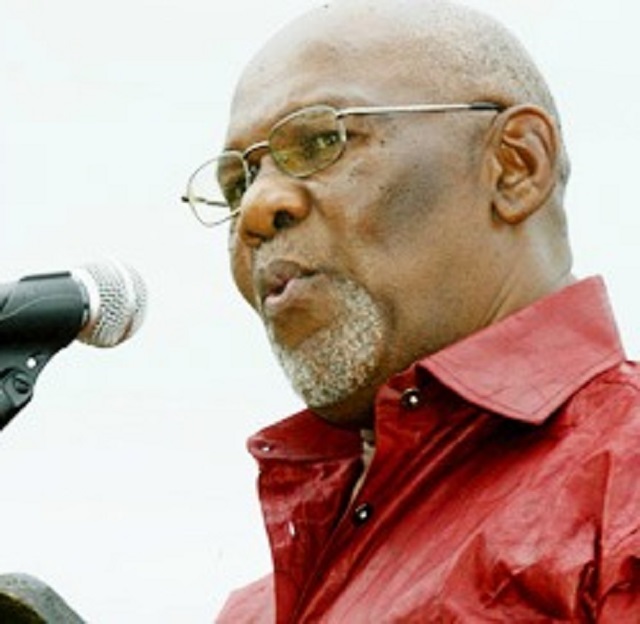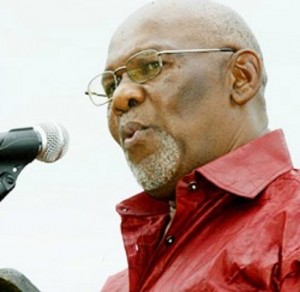
The Sunday News

Micheal Mhlanga
A tale is told of a once famous soldier whose fame was quickly faded because of his final defeat. It is said Xerxes’ military career was one of unbridled success, yet at Thermopylae he met his match.
Vastly outnumbering the alliance of Greek forces, Xerxes could have expected to sweep them aside and march on into Europe, yet he did not count on Greek resilience or the highly trained Spartan soldiers holding the pass. They say Xerxes lost 50 men for every Greek that was killed. He would eventually be halted at Plataea, a Greek victory that owed much to the Spartan sacrifices. This is a mirror sequel of how one of Zimbabwe’s “Black Russian” as the Rhodesians called him shall be remembered should he not be wary of the impending inevitable.
History is a recounting of events whose diction shapes what the reader infers. Most men lose it when they are at the climax of their glory — they suppose that championship remains as long as you go on, yet a single missed step is what determines who you become when the world remembers you. My uncle always reminds me that you write your own story and make the choice of either to be remembered as great or as a cameo in other people’s stories. This is the inevitable of one man I still respect for his military and calm, yet intelligent personality.
Great Zimbabweans, many of you now know Dumiso Dabengwa as the Ndebele political leader, which in itself is divisive and does not spell the true essence and resemblance of once a formidable nationalist movement. The very fact that one has to reference him along ethnic belonging relegates the truth in what Zapu was and represented then and today in the good sense of history. In his rendition of his life, Maurice Nyagumbo — “Some of us must remain with the people, even if it means going to jail” he tells us of how Zapu ignited the spark of rebellion against a tyrannical Rhodesian government which perpetuated Cecil John’s brutal colonial aspirations. Let me skip the commentary of events of the liberation struggle and hop to 1987-Zanu and PF Zapu merging. This marked the dissolution of both parties to form Zanu-PF, at that moment everyone in both parties belonged to Zanu-PF, including Dabengwa.
What puzzles me is his decision in 2008 when he “revives” Zapu. I question the philosophy of “reviving” because no one has questioned if Zapu had dissolved in 1987 or did it still clandestinely exist such that it had to be “revived”. History tells us that in 1987, Zapu ceased to exist. If Zapu was dissolved in the merger, it means that it was non-existent by then unless its members want to tell us that their entrance into the Unity Accord was a skimid ride-nothing else besides a show-a display of political entertainment.
In that memory, the revival of Zapu meant the need to ignore and abolish the 22nd of December celebration. The revival of Zapu is a declaration of the accord’s breakage which Dabengwa exclaimed in 2008 when he revived Zapu. So, what does the holiday resemble then if the people who curated it now parade their divorce from it? Beyond the narrative that the accord’s interest were not served is it the true reason why Dabengwa left Zanu-PF?
Great Zimbabwean, a lot of questions arise when we think deeply about the revival of Zapu because some people who were Zapu then are still Zanu-PF and do not recognise the existing Zapu as what they belonged to except that it’s led by one they used to share a political table with- so nothing was revived; it’s a new party. In the interest of truth, did PF Zapu join with Zanu or there was an underground movement still dissenting from all that unity stood for which sought a dire need for revival?
It should also be known that under the Zanu-PF tag, Dabengwa lost the 2000 and 2005 Nkulumane Constituency Parliamentary election. This on its own reflects detest of the person of Dumiso by the Matabele electorate. Should we buy the argument by one Dinizulu Macaphulana that Bulawayo is an angry protestant electorate? Then Dabengwa’s Zapu should have won even a council seat in 2008 when he declared his self expulsion from Zanu-PF. I think his assumption was that people disliked him because he is Zanu-PF therefore re-entrance in the shirt of a former glorious Matabele political powerhouse would earn him favour. 2008 and 2013 were no different except that with each election, Zapu figures seem to speedily shrink. I think he makes a fine strategist behind military doors than a public politician.
I also don’t think his revival of Zapu was born by a strong conviction of upholding the Unity Accord’s projections, I think he calculated the avoidance of his embarrassment as a Matabele Zanu-PF candidate as the wake of MDC made sure that it sweeps every seat in Bulawayo then. Since the formation of the MDC in 1999, the writing was on the wall for most former senior Zapu cadres in Matabeleland, particularly in Bulawayo and Matabeleland North. After failing to win a seat in 2005 Parliamentary polls, Dabengwa probably realised that his fate had been sealed and the only way to resurrect his relevance in Matabeleland would be to excuse himself from Zanu-PF. So it came as no surprise when he openly backed the presidential aspirations of Simba Makoni on March 1, 2008. This paved way for him to formally leave Zanu-PF because he had betrayed the party’s highest decision making body outside Congress by turning his back on President Mugabe who had been officially endorsed. However, a closer analysis of events shows that Dabengwa’s revival of the party they had willingly collapsed into Zanu-PF was a matter of sour grapes.
This leaves me questioning Dabengwa’s sincerity. Following some of the reasons of his exit from Zanu-PF in which he cites the 1982-85 Gukurahundi narrative, I then ask myself that, so it took him 21 years to make that decision or like any other regime opponent, this is an easy card to draw the electorate’s vote. Secondly, why did he agree in the first place to serve a party which he has disparaged, remember, he held many important posts in the government, one of them being the very powerful Ministry of Home Affairs in 1998. If he was principled as he now wants us to believe, he should have declined to serve in the Unity Government from 1987.
So was the revival of Zapu in the genuine interest of its marginalised former cadres or a push for personal political ambitions by whipping up people’s emotions? I realised that Dabengwa like any other politician was using the issue of violence as a currency to trade political mileage. He, like all of them in the regime dissent, raise concerns on crimes against humanity when it’s politically convenient instead of selling their philosophical alternative in a sober manner.
Looking at Zapu today, one can always make an accuracy of mixing it with briefcase parties such as Khumbulekhaya, Zimbabwe First, NAGG and all other backroom political congregations. Zapu has failed to capture the Matabele vote which it assumed would be easy if DD would come back in a T-shirt with a bull in front of it. They have perennially lost the vote to an ever splitting MDC which they have claimed to be a child of Zanu-PF as Dinizulu Macaphulana said in 2010. Zapu is now tribal, that I have deduced from the way they have positioned themselves in the grand scheme of our politics. First, they operate in one region which they claim needs national healing because of the remnants of ethnic cleansing which led to DD’s leaving of Zanu-PF.
The little spoils that Zapu shares with Mthwakazi Liberation Front and the Republic Party do not compensate for any of the reasons that Dabengwa can give for reviving Zapu. The best he can do is to let go whilst we still celebrate his military brilliance instead of subjecting himself to the vultures of memories. In the interest of space: Can Zapu exist outside Dabengwa or Dabengwa is Zapu itself. Let’s think of that.
Follow @mhlanga_micheal




